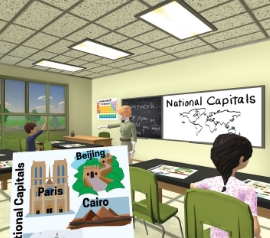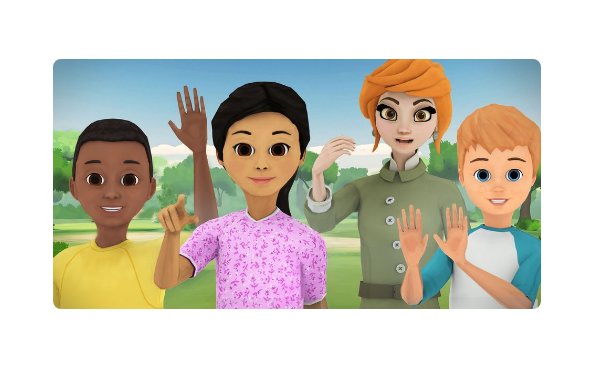Play is a critical skill that often gets taken for granted. When children engage in play, they learn essential motor skills, they expand their conceptual understanding, they develop an understanding of how to use language and interact with peers, and they expand their imagination and problem solving skills. Play skills have a typical developmental trajectory, but the Learners that we support can sometimes miss some of these steps. During the school year, it can be challenging to focus on these skills, but the summer may open up some opportunities to do so. Over the past several months, Floreo has released lessons specifically designed to work on a young Learner’s play skills.
When children are still at the early stages of learning to play, they go through a level of development referred to as Associative Play. This is where children play side by side, sometimes with the same objects, but may not necessarily be interacting. When play with the same objects (such as crayons or building blocks), there are often opportunities to respond to or request to share items. Painting with Friends, where the Learner is creating a picture, but may be approached by another child to request sharing, is designed to support the level of play. Practice sharing or requesting that the other child wait to borrow a color can help foster perspective taking.
Cooperative play typically develops after Associative play. Magic Mix: Who’s Next? focuses on interactive play with peers. The lesson highlights making a creation with other children, turn taking, and discussing interests. The social interactions learned with cooperative play are a cornerstone for developing social skills throughout one’s lifetime.
Cloud Chronicles: Tales from the Sky is a lesson designed to help children develop their imaginative play. It encourages the Learner to imagine what images can be viewed in the sky. Imagining and talking about it with someone else can support creative thinking and problem solving. It also fosters children’s narrative (i.e., storytelling) and language development.
Other questions ask about your young Learners while they are playing:
- Can your Learner play at one activity for more than just a few minutes?
- Can your Learner describe what they are doing?
- What happens when your Learner and a playmate have a difference of opinion about the on-going play?
- Does your Learner notice and respond when a playmate has a change in mood?
- Can your Learner enter a play group? (Try out the new Chit-Chat with Ayanna for practice approaching a peer and starting a conversation!)





-1.png?width=550&height=250&name=Untitled%20(3)-1.png)